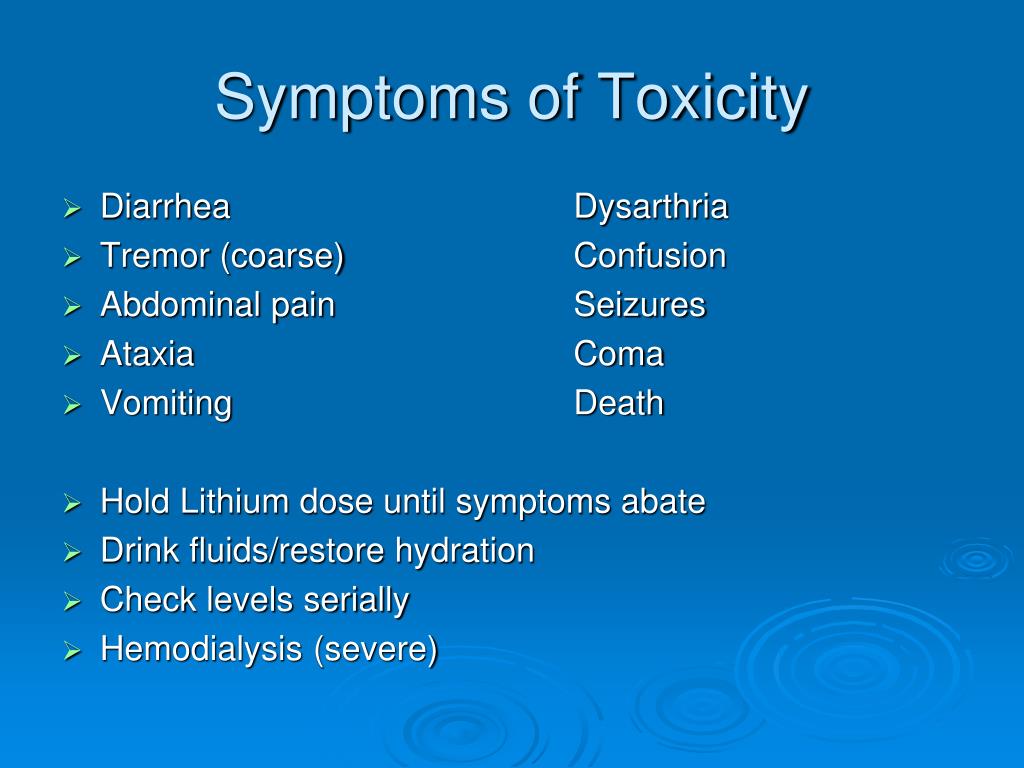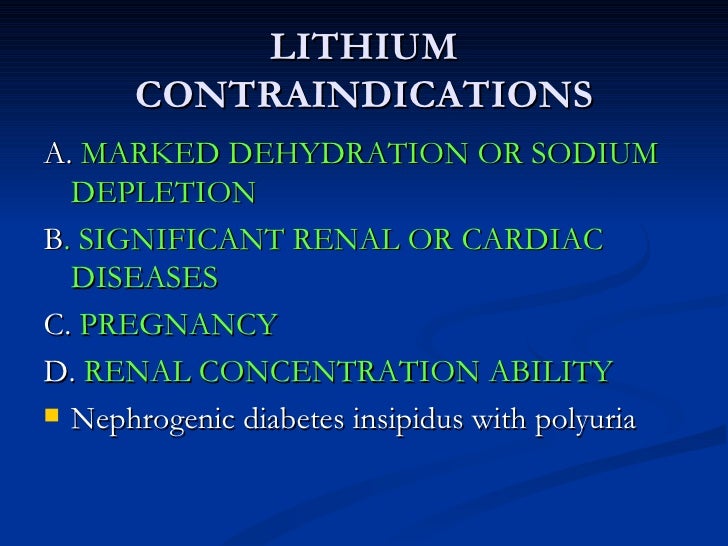

In most cases, lithium-associated renal effects are relatively mild. Lithium has adverse effects on the kidneys, thyroid gland and parathyroid glands, necessitating monitoring of these organ functions through periodic blood tests. In contrast, weight gain and cognitive impairment from lithium tend to be more distressing to patients, more difficult to manage and more likely to be associated with lithium nonadherence. A simple set of management strategies that involve the timing of the lithium dose, minimizing lithium levels within the therapeutic range and, in some situations, the prescription of side effect antidotes will minimize the side effect burden for patients. Thirst and excessive urination, nausea and diarrhea and tremor are rather common side effects that are typically no more than annoying even though they are rather prevalent. This paper summarizes the knowledge base on side effects and toxicity and suggests optimal management of these problems.


Additionally, side effect concerns assuredly play some role in lithium nonadherence. Although this observation is multifactorial, one obvious potential contributor is the side effect and toxicity burden associated with lithium. Despite its virtually universal acceptance as the gold standard in treating bipolar disorder, prescription rates for lithium have been decreasing recently.


 0 kommentar(er)
0 kommentar(er)
